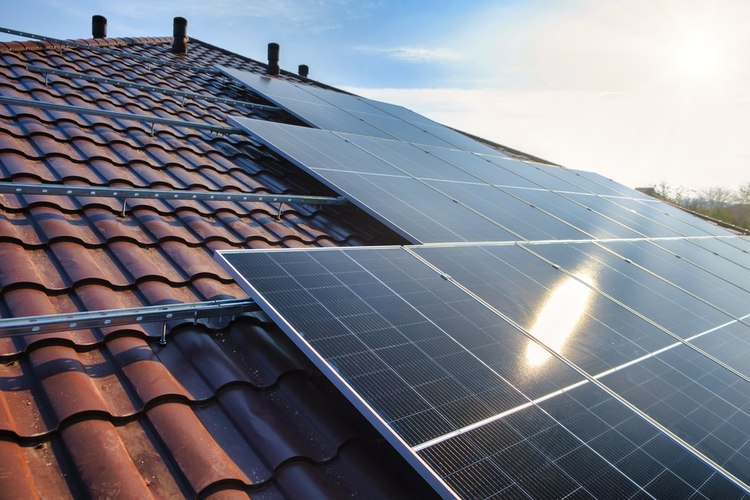Considering Solar Panels? Here’s What Homeowners Are Learning
Solar energy is gaining popularity across the US, but many homeowners still wonder what it really means for their homes. This article explores how solar panels work, what factors influence their cost, and why more people are looking into this technology today.

How Solar Panels Work in Residential Settings
Solar panels convert sunlight into electricity through photovoltaic cells, typically made from silicon semiconductor materials. When sunlight hits these cells, electrons are knocked loose, creating an electrical current that flows through the panel’s wiring system. This direct current (DC) electricity then travels to an inverter, which converts it into alternating current (AC) electricity compatible with household appliances and the electrical grid.
The system includes several key components beyond the panels themselves. Mounting hardware secures panels to rooftops or ground installations, while monitoring systems track energy production and system performance. Smart inverters can optimize power output and provide real-time data about electricity generation, helping homeowners understand their energy production patterns throughout different seasons and weather conditions.
Benefits of Solar Energy for Modern Households
Homeowners report significant reductions in monthly electricity bills, with many achieving net-zero energy costs during peak production months. Solar installations can increase property values, with studies indicating homes with solar systems often sell faster and at premium prices compared to similar properties without renewable energy features.
Environmental benefits include substantial carbon footprint reduction, as residential solar systems typically offset several tons of carbon dioxide annually. Energy independence becomes particularly valuable during power outages when paired with battery storage systems, allowing households to maintain essential electrical functions even when the grid experiences disruptions.
Average Solar Panel Costs and Financial Considerations
Solar panel installation costs vary significantly based on system size, equipment quality, and regional factors. Typical residential installations range from $15,000 to $30,000 before incentives, with average costs falling between $2.50 and $4.00 per watt of installed capacity. A standard 6-kilowatt system might cost approximately $18,000 to $24,000 before federal tax credits and local rebates.
Federal tax credits currently provide substantial savings, covering 30% of total installation costs through 2032. Many states and utilities offer additional incentives, rebates, or performance-based payments that can further reduce upfront expenses. Financing options include solar loans, leases, and power purchase agreements, each offering different advantages depending on individual financial circumstances.
Finding Solar Companies in Your Area
Local solar installers often provide personalized service and understand regional permitting requirements, utility interconnection procedures, and area-specific incentives. Researching companies in your area involves checking licensing credentials, insurance coverage, and Better Business Bureau ratings. Many established installers offer comprehensive warranties covering equipment, workmanship, and system performance guarantees.
Regional companies frequently have established relationships with local utility providers, streamlining the interconnection process and ensuring compliance with area building codes. They also understand local weather patterns, optimal panel positioning, and potential shading issues specific to your geographic location, which can significantly impact system performance and energy production.
Comparing Solar Companies and Installation Options
When evaluating different solar providers, homeowners should consider equipment quality, warranty terms, installation timelines, and ongoing customer support services. Some companies specialize in premium equipment with higher efficiency ratings, while others focus on cost-effective solutions for budget-conscious customers.
| Company Type | Service Focus | Typical Cost Range | Key Features |
|---|---|---|---|
| National Installers | Standardized packages | $2.75-$3.50/watt | Streamlined processes, financing options |
| Regional Companies | Local expertise | $2.50-$3.25/watt | Personalized service, area knowledge |
| Premium Providers | High-efficiency systems | $3.25-$4.00/watt | Advanced technology, extended warranties |
Prices, rates, or cost estimates mentioned in this article are based on the latest available information but may change over time. Independent research is advised before making financial decisions.
Installation quality, customer service responsiveness, and long-term maintenance support vary considerably between providers. Obtaining multiple quotes allows homeowners to compare system designs, equipment specifications, and total project costs while evaluating each company’s approach to customer education and post-installation support services.
Homeowners are discovering that solar panel decisions involve more than initial cost comparisons. System performance, equipment durability, installer reputation, and ongoing support services all contribute to long-term satisfaction with solar investments. As technology continues advancing and costs evolve, thorough research and careful provider selection remain essential for successful solar installations that deliver expected energy savings and environmental benefits over their 25-year operational lifespans.




